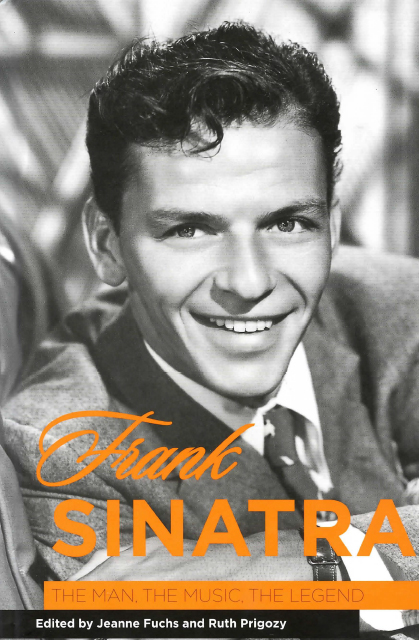Introduction
Published online by Cambridge University Press: 10 March 2023
Summary
In the twentieth century, Frank Sinatra became a legend not only in the field of popular music, but also in almost every aspect of American culture. Although he died before the end of the century, two critics dismiss the exact chronology bluntly, “To hell with the calendar. The day Frank Sinatra dies, the twentieth century is over.”1 Looking back on the last century, we find three figures who dominated specific eras: Bing Crosby, Frank Sinatra, and Elvis Presley. Despite early denigration by critics, each acquired devoted fans and eventually each won approval from even the most hardened opponents among the critical cognoscenti. Crosby achieved popularity in the thirties, peaked in the war years, and faded in the fifties when Elvis Presley made his unforgettable public debut before hordes of shrieking fans. Crosby, charming and affable, served as a symbol of enduring American values when our security was threatened by a dangerous enemy. Elvis Presley, the post–World War II phenomenon, opened our eyes to no less than a new generation's repressed sexuality.
Sinatra, who started as a singer in the forties, was somehow able to express perfectly the loss, loneliness, and romantic yearning that those years inspired. Unlike any other figure of the century, Sinatra was able to reach new audiences with each passing decade; the new Sinatra of the fifties was unlike the thin, soulful but sometimes comic figure of the war years. He became the tough yet vulnerable leading man—singer and actor—with a new kind of voice and musical delivery that startled listeners and made millions of new fans after the bobby-soxers of his youth had moved on to families and suburban life. Remarkably, he was able—with new management, new friends, new music, and new film roles (and selected television appearances) along with (and not despite) accounts of notorious associations andpersonal peccadilloes—to become an integral part of our culture. The name Sinatra would become known to everyone—and by the end of the century, Frank Sinatra had become an icon—a symbol of the best and worst in our society, with the best so good that the worst would always be forgiven.
Information
- Type
- Chapter
- Information
- Frank SinatraThe Man, the Music, the Legend, pp. 1 - 6Publisher: Boydell & BrewerPrint publication year: 2007
